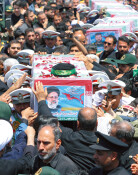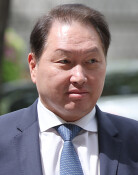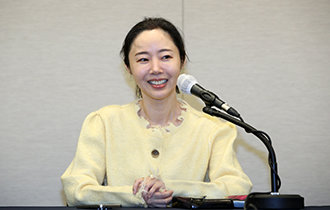Neighboring Countries React Differently to Prospect of Talks
Neighboring Countries React Differently to Prospect of Talks
Posted October. 08, 2007 08:05,
After the leaders of the two Koreas agreed to hold three or four-party summit talks for declaring an end to the Korean War on October 4, the remaining four countries participating in the six-party talks are busy evaluating the agreements announced between the two Koreas. The two Koreas has been technically at war since the Korean War ended in ceasefire in 1953.
After it was revealed that future talks will involve the two Koreas and the U.S., China, and Russia, which were not specifically mentioned as possible participants, swung into action.
Chinese diplomatic sources reported yesterday that, The Chinese governments official position on the matter was indirectly announced by Chinas ambassador to Korea. Ambassador Ning said last Friday, China will play a constructive and active roll in transforming the current ceasefire into a peace treaty.
Nings statement made it clear that China must participate in the talks aimed at ending the war, and that China will not accept summit talks without being invited.
On condition of anonymity, an expert on China noted, China is more than disappointed at the agreement by the Koreas.
Russia seemed uncomfortable at being left out as well. A source remarked, Russian officials, who wished to expand Russias influence on the Korean peninsula, are deeply frustrated at the idea of a three-way cooperation framework not including Russia. Not being consulted prior to the inter-Korean summit talks and not being included on the list of countries participating in the talks to declare an end to the war also riled Russia.
Some Russian media organizations protested that Russia was excluded from the list of countries participating in the three or four-way talks despite its vigorous efforts in resolving the Norths nuclear program issue.
Perhaps coincidentally, on October 4, when the results of the inter-Korean summit talks were released, the Russian government informed the Korean embassy in Russia that there would be delay in a Korea-Russia meeting on Far East economic cooperation scheduled for next week.
For its part, the U.S. emphasizes that if the North Korean denuclearization plan is realized, the ceasefire regime will turn into a formal peace treaty, but summit talks with the North and signing a peace treaty will only be possible when North Korea is nuclear-free, no matter how many countries take part in the talks.
For this reason, U.S. diplomatic experts say that President Roh Moo-hyun has tactfully tried to achieve a tangible outcome during his presidency. They said in response to the statement Foreign Minister Song Min-soon made yesterday. Song said, Declaring an end to the Korean War is not the end of the discussion for a peace regime, but could be the announcement of the opening of a discussion. This means that Korea wants to find an alternative to the principle that a peace regime goes hand in hand with denuclearization.
Meanwhile, the Japanese press questioned the feasibility of summit talks for a peace treaty and pointed out that if three-way talks are held, China wont accept exclusion. The Yomiuri Shimbun questioned the possibility of three or four-party talks and noted, For the U.S., North Koreas denuclearization is a condition for both the realization of U.S.-North Korea diplomatic ties and a declaration ending the war, but there was few signs at the inter-Korean summit talks to indicate that the North has decided to abandon its nuclear program.







